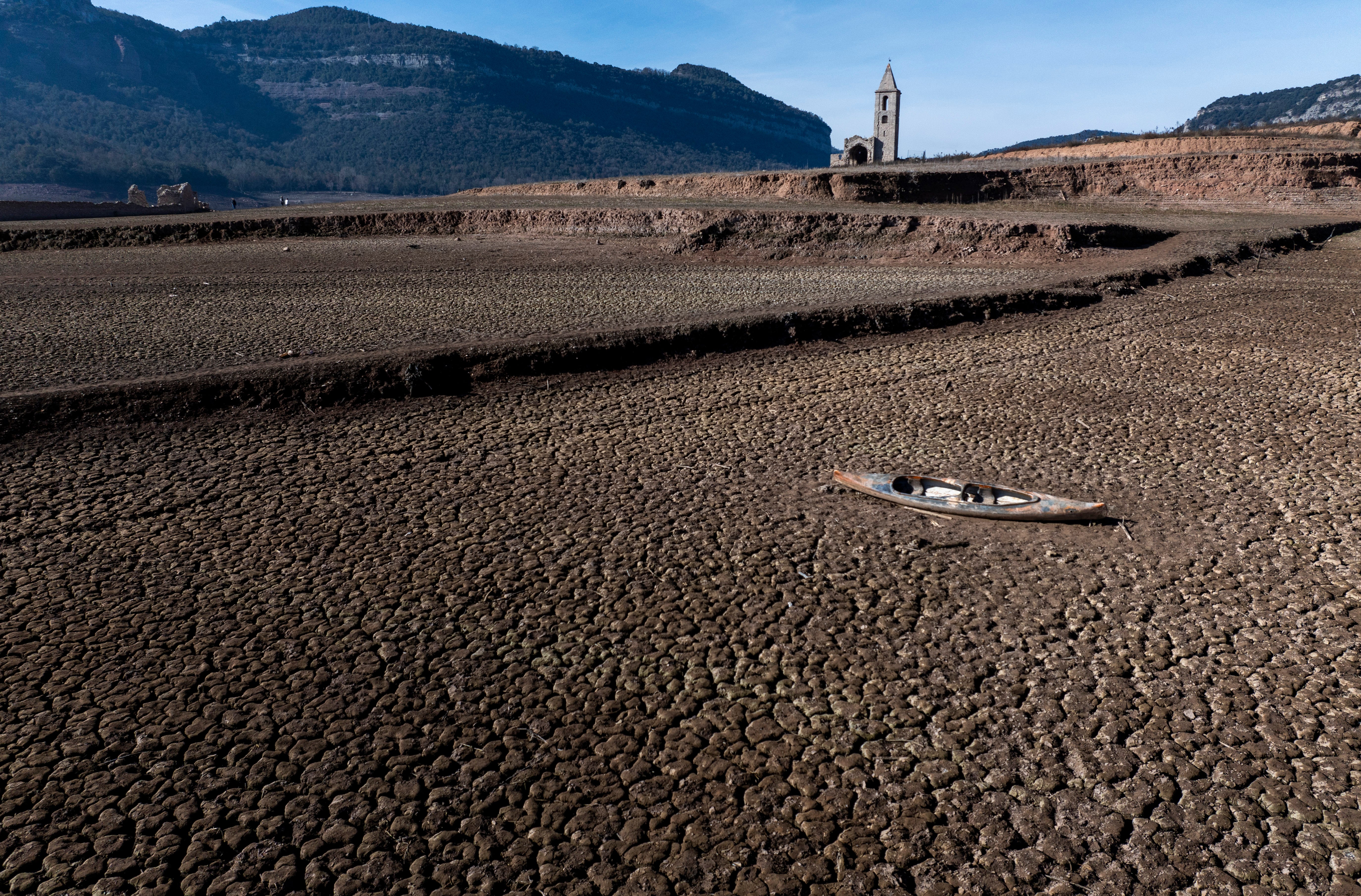EU officials pledge to develop more water-saving technologies in farming as droughts worsen
Officials from nine southern European Union countries have pledged to work together to develop more water-saving technologies in agriculture as the prospect of worsening droughts puts additional strain on farmers

Your support helps us to tell the story
From reproductive rights to climate change to Big Tech, The Independent is on the ground when the story is developing. Whether it's investigating the financials of Elon Musk's pro-Trump PAC or producing our latest documentary, 'The A Word', which shines a light on the American women fighting for reproductive rights, we know how important it is to parse out the facts from the messaging.
At such a critical moment in US history, we need reporters on the ground. Your donation allows us to keep sending journalists to speak to both sides of the story.
The Independent is trusted by Americans across the entire political spectrum. And unlike many other quality news outlets, we choose not to lock Americans out of our reporting and analysis with paywalls. We believe quality journalism should be available to everyone, paid for by those who can afford it.
Your support makes all the difference.Officials from nine southern European Union countries pledged Tuesday to work together to develop more water-saving technologies in agriculture as the prospect of worsening droughts puts additional strain on farmers and threatens food security.
The promises came during a gathering in Cyprus of the so called MED9 countries — France, Greece, Italy, Croatia, Portugal, Malta, Spain and Slovenia — to address growing water scarcity as a result of climate change, especially in the Mediterranean region, which they say is being affected to a greater degree than other parts of the 27-member bloc.
The officials also pledged to share technical and practical data and launch joint research programs to make water use as efficient as possible.
“Climate change is a real threat to food production worldwide, and this risk is even more severe in the Mediterranean area,” Spain’s Agriculture Minster Luis Planas told the meeting. “We must both fight climate change and, at the same time, adapt the working conditions of our farmers to this new climate situation.”
Cyprus Agriculture Minister Maria Panayiotou warned that Europe last year faced its worst drought in 500 years and cited local examples of “smart” irrigation systems and solar power-related technologies that help protect crops, generate electricity and save water use by 30%.
Portuguese Agriculture Minister Jose Manuel Fernandes urged for more EU funding to help finance new water-saving technologies and create new incentives to attract younger people to revitalize an aging farming population.
French Agriculture Minister Marc Fesneau highlighted latest techniques that help create new crops, able to thrive in harsher climate conditions while Fernandes said so-called genomic research is “totally different” from genetically modified crops that have stirred controversy within the bloc in the past.
The MED9 officials also urged the EU to come up with a common approach to water conservation while taking into account regional requirements.
“As the climate crisis will have a major impact on global food security, climate change adaptation must be placed at the heart of our common policies,” Slovenia's Agriculture Minster Mateja Čalušić said.
___
Follow AP's coverage of climate change: https://apnews.com/hub/climate-change